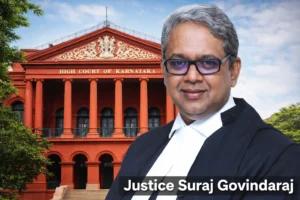The Orissa High Court, in a recent landmark ruling, appointed a wife as the legal guardian of her husband who has been in a persistent vegetative state since February 2024. Dr. Justice Sanjeeb Kumar Panigrahi delivered the judgment underlining that when the law is silent, the Court must act under its constitutional powers to safeguard the dignity and welfare of incapacitated individuals.
The case revolved around petitioner Smt. Epari Sushma, whose husband, Mr. Suresh Kumar Epari, suffered multiple organ failure, cardiac arrest, and continues to be in a non-responsive state. The Court acknowledged the enormous physical, emotional, and financial burden she was bearing alone.
“There can be no person more naturally, morally, or legally suited than the wife to act as guardian. Her appointment is not only an act of legal necessity but also of moral imperative and social logic,” observed the Court.
Medical Background and Family’s Plight
Mr. Epari, a businessman managing several enterprises, was admitted in January 2024 after being diagnosed with pneumothorax. His health deteriorated quickly, requiring advanced ICU care, dialysis, and later a transfer to hospitals in Gurugram and Visakhapatnam. Despite prolonged treatment, he remained unconscious, needing round-the-clock support.
Read Also:- Superior Authorities Should Avoid Passing Derogatory Remarks Against Judicial Officers: Orissa High Court
Smt. Sushma, left to care for her husband, manage household expenses, pay for their son’s education, and run business operations, found herself unable to legally act on her husband’s behalf due to lack of statutory provision.
Legal Gaps and Cultural Realities
Justice Panigrahi stressed the absence of clear legislation for appointing guardians for individuals in vegetative states. The Rights of Persons with Disabilities Act, 2016, only covers those who can interact to a limited extent, thus excluding fully incapacitated persons.
“The law must not operate in a vacuum… Courts must fill the legislative gaps and protect incapacitated persons without compromising their dignity,” the judge noted.'
Read Also:- Dissent Must Be Voiced in Open Court If Order Is Dictated Publicly: Orissa High Court
He invoked the doctrine of parens patriae under Article 226 of the Constitution, which allows High Courts to act in the best interest of those unable to protect themselves. Similar decisions in Kerala, Delhi, Karnataka, and Bombay High Courts were cited as precedents.
Judicial Observations and Cultural Recognition
Justice Panigrahi described the wife not just as a life partner but as “Ardhangini”—half of her husband in both legal and spiritual senses. The judgment emphasized that the marital bond carries not only emotional but also societal weight when deciding guardianship.
The Bombay High Court's views were echoed:
“The eternal being is composed of two halves—man and woman. A man’s life is never complete without his Ardhangini.”
The Court granted full authority to Smt. Sushma to manage all personal, legal, financial, and medical affairs of her husband. It also instructed all relevant authorities, banks, and regulatory bodies to recognize her role officially.
“Where an individual is rendered silent by medical misfortune, the voice of the law must resonate through the person most intimately aware of his needs: his spouse,” concluded the Court.
Case Title: Epari Sushma v. Ministry of Health and Family Welfare & Ors.
Case No: W.P.(C) No. 24656 of 2024
Date of Judgment: May 09, 2025
Counsel for the Petitioner: Mr. Soumya Sekhar Parida, Advocate
Counsel for the State: Ms. Sulochana Patra, Central Govt. Counsel















